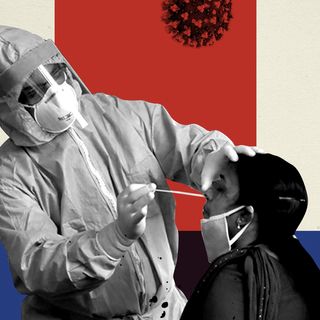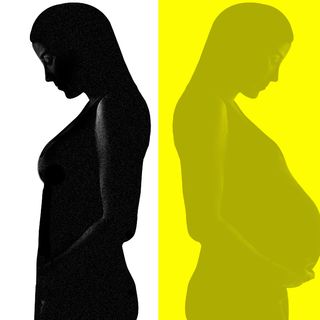A muscle twitch (also called a myoclonic jerk) is a pesky, annoying body quirk that crops up at the most random of places — in the back of the knee, in a finger, in the neck. It’s characterized by a flutter of sorts, making the presence of an ignored, underlying muscle known. For some, it’s a frequent, irritating but easily ignorable bodily function, which often causes them to gloss over its occurrence, never investigating exactly why it happens.
Ignoring a muscle twitch, however, is not advisable, because it almost always signals an underlying lifestyle issue that should be fixed.
What is a muscle twitch?
Human muscles are made up of bundles of fibers. These fibers are controlled by nerves. Any time a nerve is overstimulated or damaged, it can send sporadic signals to the muscle fiber, which can result in involuntary twitching. A muscle twitch is harmless in itself, but the underlying nerve issue can have concerning causes.
What causes a muscle twitch?
Sleep deprivation is a major cause of muscle twitches. Lack of sleep affects neurotransmitters in the brain, causing them to build up and overstimulate nerves, which then signal to muscle fibers that start twitching. A similar process occurs when a person is overly caffeinated. As caffeine is a central nervous system stimulant, it can wreak havoc on people’s anatomy, from nerves to muscles.
Related on The Swaddle:
Intermittent Fasting Could Cause Loss of Muscle Mass
Muscle twitches can also be caused by other lifestyle issues that bypass the nerves and affect the muscle fibers directly, such as overexertion. Exercise, if overdone, can cause muscle fatigue that causes muscle fibers to cramp or twitch. This usually occurs in body parts prone to overexertion, such as the arms and legs. Dehydration is another common cause of muscle twitching, as water makes up 75% of the human body’s muscle mass. A lack of water can send muscle fibers into overdrive.
Any kind of nutritional deficiency, such as Vitamin D or magnesium deficiency, can affect muscle health, overexciting fibers and sending them into a panic. Stress and anxiety, too, can cause muscle tension that stretches fibers thin, causing them to twitch under the strain.
All of the above-mentioned causes of muscle twitches are concerning lifestyle issues a person needs to fix, before they worsen and cause harmful symptoms.
What’s the difference between a muscle twitch and a muscle spasm?
While both are involuntary contractions of muscle fibers, muscle spasms are more painful, constant, and act like a cramp. A muscle twitch, in comparison, is not painful and feels like a flutter that subsides after a few minutes. It can be reoccurring.
What’s the difference between a muscle twitch and a tic?
Tics are sudden spurts of movement or speech. The former, called motor tics, are similar to muscle twitches, but there are a few key differences. Motor tics occur in a burst of rapid repeated movement, while muscle twitches are typically one-off (maybe two- or three-off) flutters. Motor tics also typically affect specific movement, such as eye-blinking, shoulder-shrugging, head-jerking, etc., while twitches can occur anywhere in the body. Finally, the biggest difference is that muscle twitches are involuntary — entirely outside a person’s control. Tics, on the other hand, are unvoluntary; they can be suppressed temporarily, though doing so causes discomfort that is only relieved by the tic.
Can muscle twitches signal a health condition?
Muscle twitches are sometimes symptoms of serious illnesses, such as multiple sclerosis or lupus. These illnesses, however, are categorized by more apparent symptoms, such as muscle weakness or atrophy and muscle twitches without any of the other signs of these illnesses are unlikely to be related to them. Muscle twitches can also signal relatively less serious conditions, like a pinched nerve.
At the end of the day, everyone has or has had muscle twitches. While not overly concerning, it’s best to try and get to the bottom of why they’re occurring. If they’re occurring frequently, it might be time to change one’s lifestyle.




